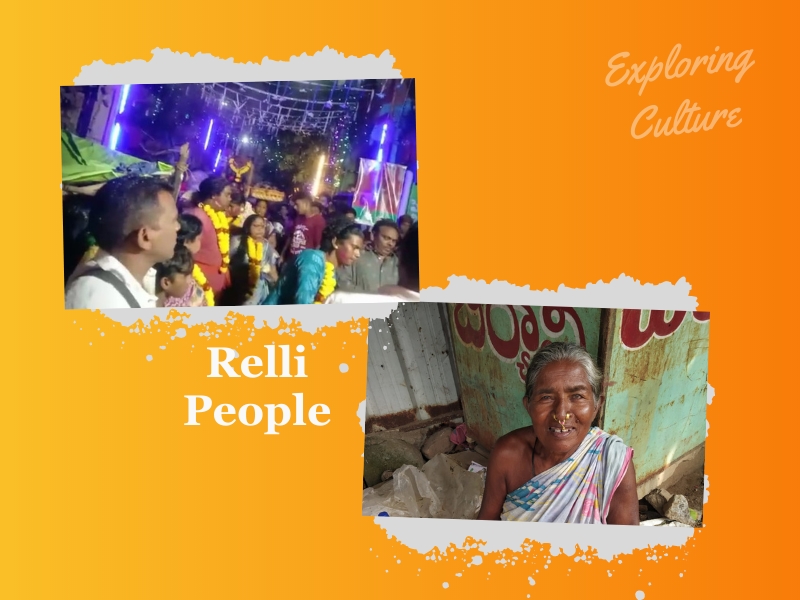Nestled within the diverse cultural landscape of India, the Relli people form a unique ethnic community known for their rich traditions, captivating folklore, and vibrant way of life. In this article, we delve into the rich tapestry of Relli culture, exploring their history, customs, and the significance of preserving their cultural heritage.
The Term Relli
In the Telugu language, Relli means a kind of grass. Their traditional occupation has close relation with this term. They used to collect and sell grass for medicinal purposes. Now they involve in various agricultural and non-agricultural activities such as fruit selling, street sweeping, scavenging, etc.
Unveiling the Relli Heritage
Relli community can be mainly found in the coastal districts of Andhra Pradesh. They are also distributed in states such as Odisha and Chhattisgarh. The community includes a few social subdivisions and each of these includes several clans. The population in Andhra Pradesh is approximately 1,21,058 according to the census of 2001. As we said, Their main occupation is the collection and selling of grass, seeds and fruits. Rice is the main food. Occasionally they cook meat. They have a wide cultural tapestry including various stories, music and dance forms. They belong to Scheduled Caste.
Festivals and Rituals
Their culture involves a lot of rituals and festivals. They follow Hinduism. Their Customs are popular even today and include the worship of Hindu gods and goddesses. One of their festivals is Relli Jathara, where the community comes together to celebrate with music, dance, and traditional rituals. Another interesting ritual of the community is Relli Pooja, a religious ceremony observed to seek blessings and express gratitude.
Challenges Faced by the Relli People
The Relli community confronts the significant challenges of poverty and social backwardness, which hinder their progress and well-being. Practices such as superstition and black magic further intensify these problems, exacerbating the community’s struggles. Another pressing social issue they face is the lack of basic education, particularly the low literacy rates among women. The absence of women’s literacy poses a significant barrier to their empowerment and hampers social development. Addressing these challenges requires proactive measures, such as promoting economic opportunities, dispelling superstitions through education, and empowering women through accessible and inclusive education initiatives.
Conclusion
The Relli people are an integral part of India’s cultural mosaic, carrying forward centuries-old traditions and a deep-rooted connection to the land. By celebrating and preserving the cultural heritage of the Relli community, we contribute to the diversity and richness of our collective identity. Let us embrace the opportunity to learn from and appreciate the remarkable heritage of the Relli people, promoting inclusivity, cultural exchange, and the preservation of indigenous traditions for generations to come.
Reference: Wikipedia
Read about our project on Relli Community

